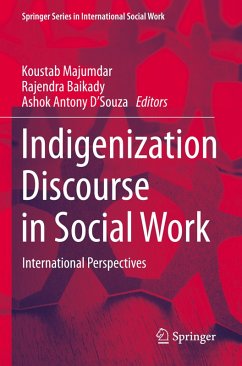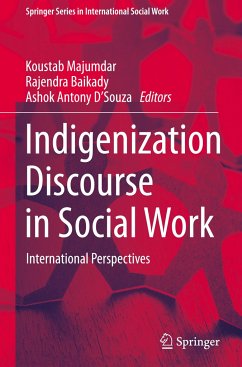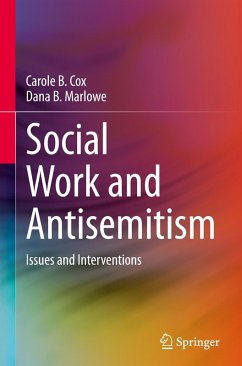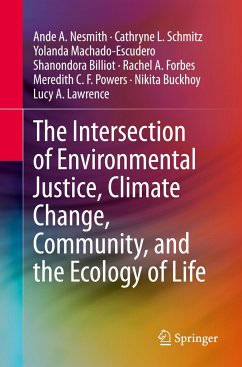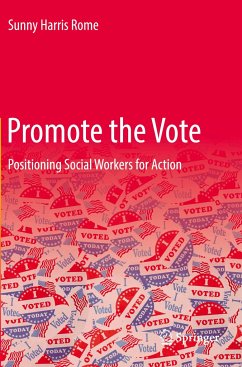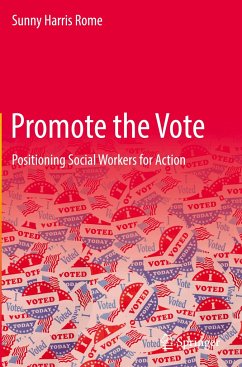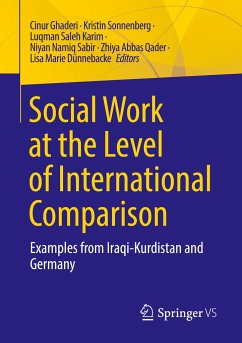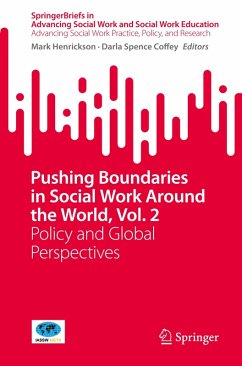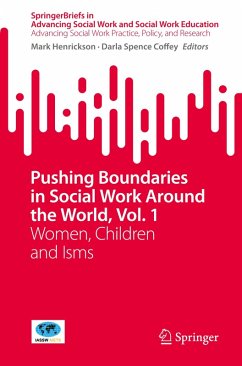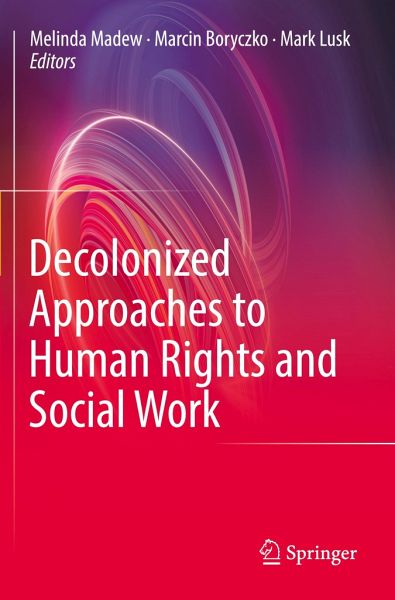
Decolonized Approaches to Human Rights and Social Work
Versandkostenfrei!
Versandfertig in 6-10 Tagen
61,99 €
inkl. MwSt.

PAYBACK Punkte
31 °P sammeln!
Despite committed effort to integrate postcolonial theory and decolonizing practices in human rights education in social work, there is scant literature offering a more balanced global perspective. This book addresses that need. Included here are discursive voices contributed by social work colleagues whose work is impacted by postcolonial realities. The task of decolonizing social work as a human rights profession calls for the inclusion of contesting perspectives from social work activists, human rights advocates and educators whose critical standpoints are drawn from the historical context ...
Despite committed effort to integrate postcolonial theory and decolonizing practices in human rights education in social work, there is scant literature offering a more balanced global perspective. This book addresses that need. Included here are discursive voices contributed by social work colleagues whose work is impacted by postcolonial realities. The task of decolonizing social work as a human rights profession calls for the inclusion of contesting perspectives from social work activists, human rights advocates and educators whose critical standpoints are drawn from the historical context of Global North-South relations. This book is essential given the many manifestations of global injustice, wars and climate catastrophes. The critical involvement of social workers in decolonized human rights advocacy is at no period in history, more urgent than now.
The book:
Engages readers in reflective discourse over the contentious manner human rights principles are referenced by social work practitioners within the context of contemporary North-South geopolitics Explores dilemmas, conflicts, challenges and limitations experienced by social workers worldwide while upholding human rights principles Uses critical case studies that expose how the vestiges of colonialism continue to impact communities Identifies areas of human rights advocacy where social work succeeds, and where it is confronted by limiting challenges Emphasizes the importance of human rights education and practice in the context of global inequalities
Decolonized Approaches to Human Rights and Social Work provides models of good practice the world over in human rights advocacy. It is timely and essential reading for faculty who teach courses in social work, social development, community organization, human rights and social justice, as well as for students in social work, law, sociology, global studies and human rights. The book should draw readers who work in non-governmental organizations, international development agencies, advocacy groups, and community-based and grassroots organizations. International research centers, law clinics and organizations serving migrants and refugees would find it a useful resource.
The book:
Engages readers in reflective discourse over the contentious manner human rights principles are referenced by social work practitioners within the context of contemporary North-South geopolitics Explores dilemmas, conflicts, challenges and limitations experienced by social workers worldwide while upholding human rights principles Uses critical case studies that expose how the vestiges of colonialism continue to impact communities Identifies areas of human rights advocacy where social work succeeds, and where it is confronted by limiting challenges Emphasizes the importance of human rights education and practice in the context of global inequalities
Decolonized Approaches to Human Rights and Social Work provides models of good practice the world over in human rights advocacy. It is timely and essential reading for faculty who teach courses in social work, social development, community organization, human rights and social justice, as well as for students in social work, law, sociology, global studies and human rights. The book should draw readers who work in non-governmental organizations, international development agencies, advocacy groups, and community-based and grassroots organizations. International research centers, law clinics and organizations serving migrants and refugees would find it a useful resource.



